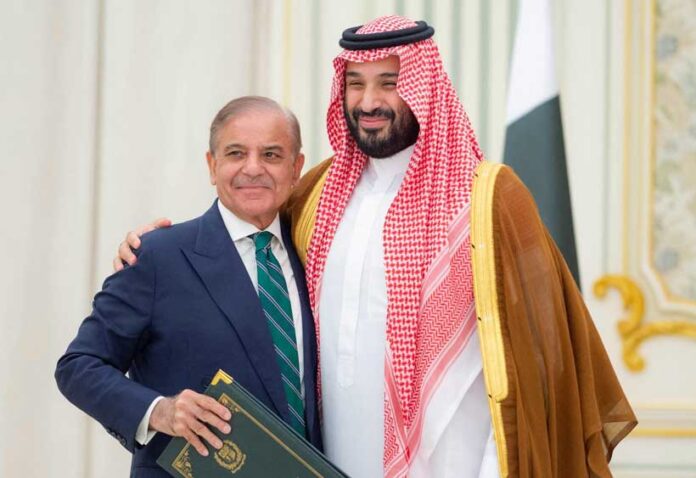Saudi Arabia and nuclear-armed Pakistan signed a landmark mutual defence pact on Wednesday, deepening decades of military cooperation at a time of heightened instability in the Middle East.
Background:
Gulf Arab states have grown uneasy about U.S. reliability as a security guarantor. Israel’s recent airstrikes on Hamas leaders in Doha, Qatar, during ceasefire talks have further inflamed regional anxieties.
What Happened:
Saudi Crown Prince Mohammed bin Salman and Pakistani Prime Minister Shehbaz Sharif formalized the agreement in the presence of Pakistan’s army chief, Field Marshal Asim Munir. The pact commits both sides to consider an attack on one as an attack on both.
Why It Matters:
The deal could shift the regional balance of power. It enhances Saudi Arabia’s defense posture, while Pakistan gains strategic backing from a wealthy Gulf ally. It also complicates India’s security outlook, as New Delhi closely monitors the development.
Official Statements:
A Saudi official stressed the pact was the result of long-term discussions, not a reaction to a single event. Pakistan’s PM office framed it as a step toward strengthening deterrence and achieving peace in the region. India, however, said it would study the pact’s implications for its own security.
Regional Context:
The agreement comes months after a brief India-Pakistan conflict and amid Gulf states’ attempts to balance ties with both Iran and Israel. Saudi officials emphasized continued engagement with India despite its rivalry with Pakistan.
With information from Reuters


